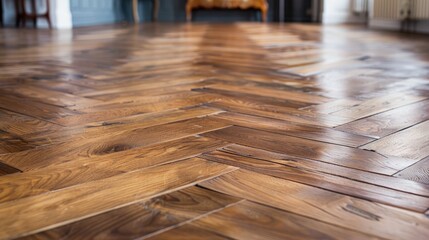
A flooring inspector is a trained professional who provides unbiased and thorough examinations of floor covering products, installation methods, and job site conditions. This includes a thorough discussion of wood and laminate concerns, moisture readings (using proper meters) substrate preparation and installation methods, and related industry standards.
He is also trained to determine the salvageability of a damaged floor covering.
Preparation
When a flooring problem is discovered it is important to gather as much information as possible. This can include product and installation invoices, receipts, cleaning records, warranty information, as well as leftover flooring material that may be available for inspection and testing. This can save time for the inspector and will often assist in determining the cause of the floor covering failure whether it is manufacturing, site-related, or installation-related.
The first thing a certified flooring inspector will do is sit down with the homeowner and listen to them explain their concerns. This is often the first time that a flooring problem has been discussed with a third party and can be very emotional for homeowners.
Once the homeowner understands the issues and is comfortable with the inspector, they can begin to discuss the inspection process. A fee is typically charged for an inspection which the inspector will ask to be paid up front. This is done to define the unbiased role of the inspector and ensure he or she will not be influenced by any opinions, findings, or conclusions based on the homeowner’s financial concerns.
The training that a flooring inspector goes through is comprehensive and hands-on. They learn the forensics of carpet, resilient, and hard surface flooring while learning inspection procedures, step-by-step field tests, examination methods, and how to write a report.
Examination
A flooring inspector has a very well-rounded floor covering knowledge including the ability to recognize visible and latent defects. Ideally, they will have an understanding of the manufacturing of sheet, carpet, and vinyl composition tile products as well as a comprehensive knowledge of expressed and implied warranties. They will understand how various substrate conditions can cause problems such as gaps, buckling, lodging, bubbles, and peaking. They will also be familiar with cleaning procedures, installation, and maintenance.
Inspectors must also have the ability to perform specialized onsite testing. For example, they may test for vapor emission or relative humidity. They will be able to set up the testing kits, read them, and provide certified results. This testing will give a clear idea of the overall moisture levels in the space which can be used to determine whether or not the problem is caused by site-related conditions, installer error, or manufacturer defect.
The IFCII inspector training process provides a solid foundation for those new to the inspection profession. They are given pre-class assignments that will increase their knowledge, leaving them more time for active learning during the class session. IFCII instructors teach them the forensics of carpet, resilient, and hardwood flooring inspections along with the proper field tests that should be performed on-site and how to write a proper report.
Report Writing
Forensic investigation, detailed history, and thorough reporting are the hallmarks of a good flooring inspector. They are able to tell you what caused the failure and are bound by a code of conduct that allows them to present unbiased findings. They can help parties reach an impasse and often resolve disputes quickly.
Many manufacturers specify that they only accept reports written by certified NWFA inspectors. This is because the inspector school provides a framework that is specifically tailored to wood flooring. This includes well-defined responsibilities for each party in the chain from the manufacturer through the end user as well as a detailed set of industry standards that cover almost any installation scenario.
Inspectors provide independent, unbiased inspections for homeowners, Flooring dealers, Remodelers, Insurance Companies, Builders, Contractors, and Manufacturers. They are available nationwide and provide a master list of independent, certified flooring inspectors. Simply enter your city or zip code and select the flooring category to search for a qualified inspector.
Depending on the length of the report, it may be helpful to include a table of contents or an executive summary at the beginning. This will give the reader an idea of what is contained in the report and will make it easier to navigate and read. Also, use a professional font in a readable size.
Conclusions
Flooring inspectors work with wood, carpet, vinyl, and tile manufacturers, retailers, builders, contractors, insurance companies, claims analysts, facility managers, homeowners, and end users. Their services are useful for many reasons, from evaluating a site before an installation project begins to offer oversight beyond an installer’s capabilities to investigating disputes resulting from a floor covering failure.
A homeowner may ask a retailer or his manufacturer for a recommendation for a local inspector. He may also contact a national association like NOFMA or NWFA and request a list of inspectors in his area. In addition, he may search online. He will want to make sure that the certifying body he chooses is legitimate and that the inspector has credentials to prove his expertise.
Many people assume that flooring inspectors will provide a report that will be clear-cut and ascribe fault to one party. However, this is not usually the case. There are often underlying issues, such as uncontrolled site conditions that should have been addressed by the builder or owner, improper maintenance by the facility manager or homeowner, unreasonable expectations by the end user, and many others. In the end, it is almost always costing someone money when a flooring failure occurs. A good inspector can save those dollars. A bad inspector can cost everyone involved. The best way to protect your investment is to use a fully certified, independent flooring inspector.